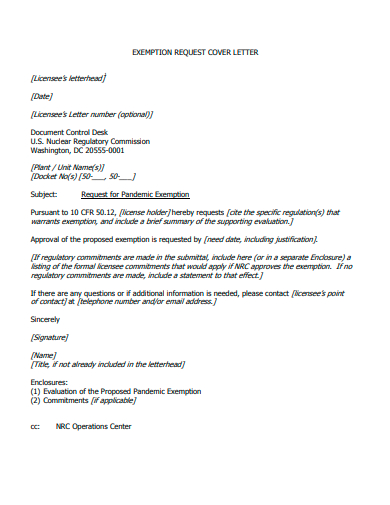
Individuals are granted certain rights and freedoms, but these privileges often come with a responsibility assignment matrix and obligations. Exemption letters sample, formal documents granting individuals exemptions from specific requirements checklist or regulations, play a crucial role in striking a balance between personal liberties and societal expectations. Exemption letters provide businesses with operational flexibility. This flexibility can be crucial for businesses facing unique circumstances, such as startup plan testing innovative ideas or businesses operating agreement in industries with evolving regulations. It enables them to adapt their operations while still maintaining compliance strategic plan within the boundaries defined by the exemption.

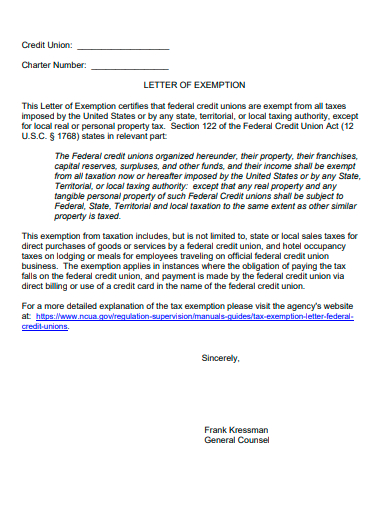
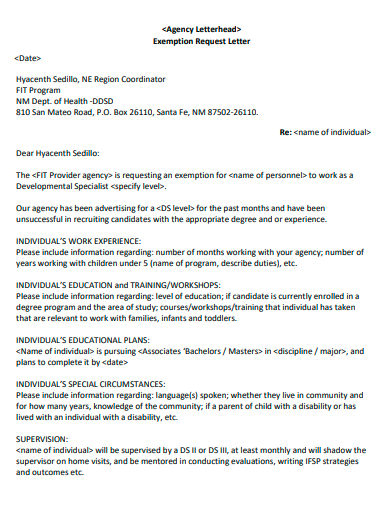
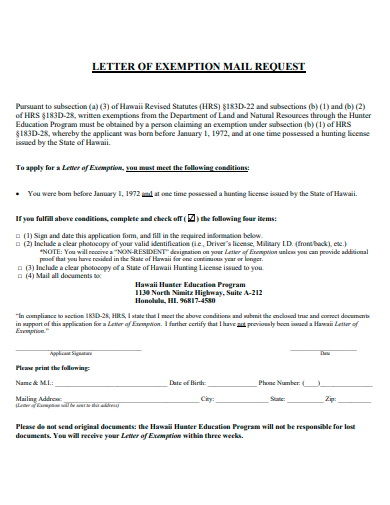
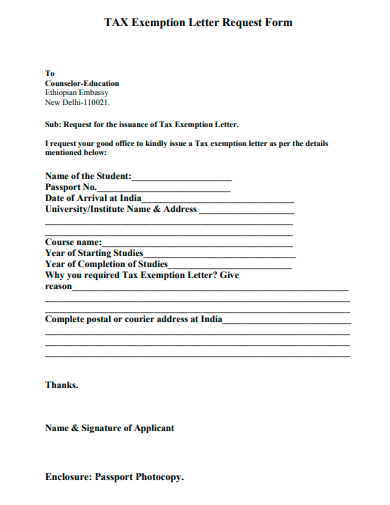 request form template" width="390" height="505" />
request form template" width="390" height="505" />
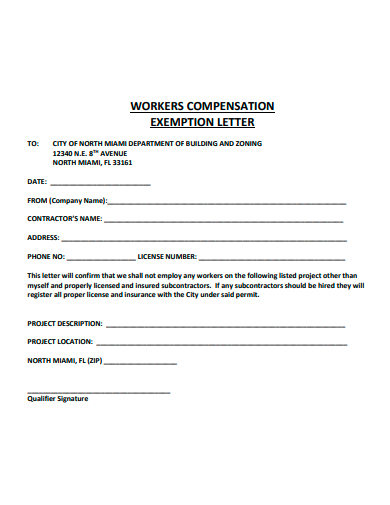
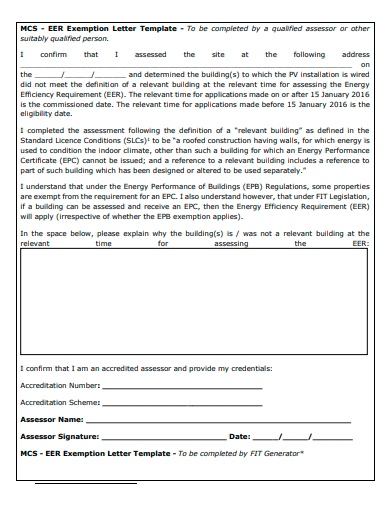
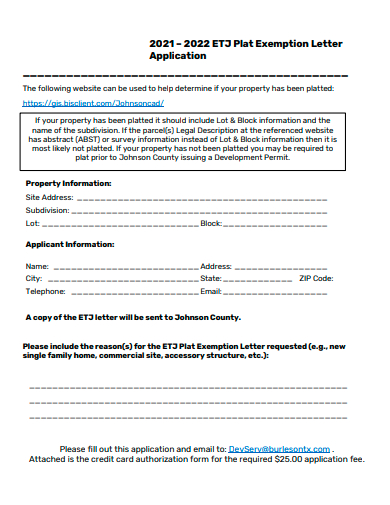
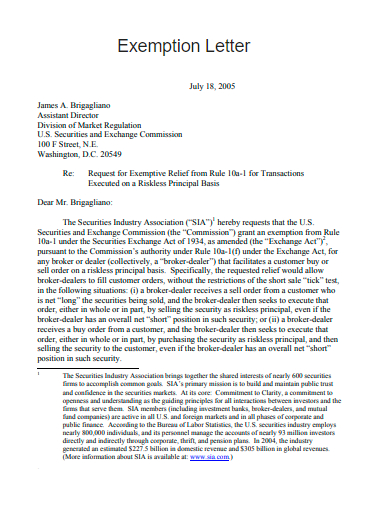
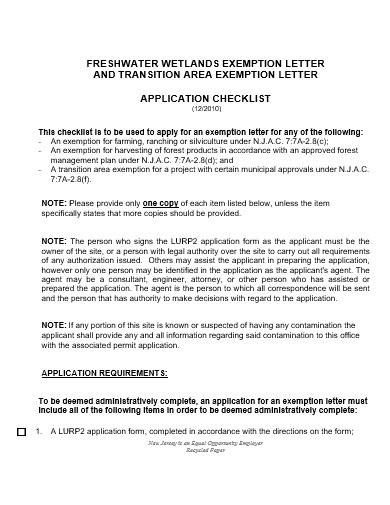
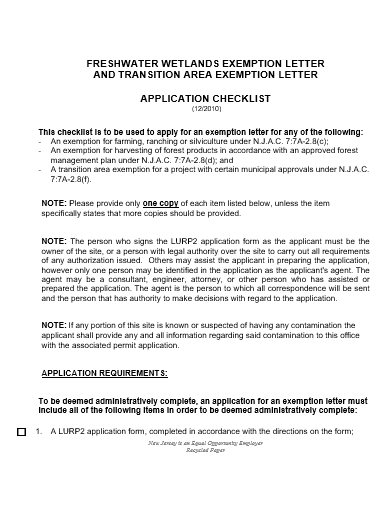
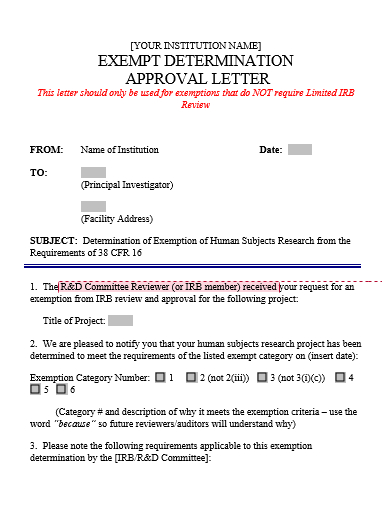
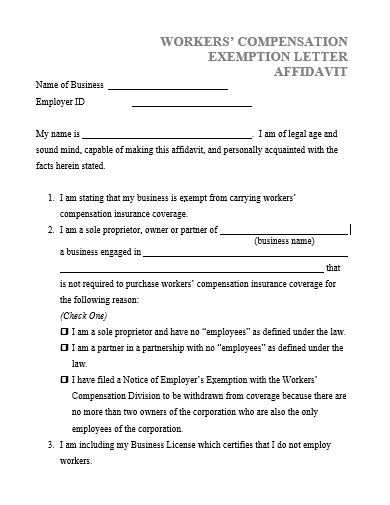
An exemption letter is a formal document that grants individuals or organizations an exemption or relief from specific requirements, regulations, obligations, or responsibilities. It serves as a legal recognition or authorization that allows individuals to be exempt from certain rules or obligations due to various reasons, such as personal beliefs, special circumstances, medical problem statement, or other legitimate grounds.
Exemption letters are typically issued by relevant authorities, such as government agencies, educational institutions, employers, or religious institutions, and they provide individuals with official proof of their exemption status. Creating an exemption letter involves several key steps to ensure that the letter is clear, concise, and properly communicates the request for proposal exemption. Here is a general guide on how to make an exemption letter:
Start by including your contact information at the top of the letter. This should include your full name, address, phone number, and email address. Leave a space and then include the date of writing the letter. Below the date, provide the recipient’s information. Include the name, title, organization, and address of the person or institution responsible for granting exemptions.
Begin the letter with a formal salutation, such as “Dear [Recipient’s Name]” or “To Whom It May Concern.” In the opening paragraph, clearly state the purpose of the letter. Explain that you are seeking an exemption from specific requirements, regulations, or obligations and briefly mention the reason for your request.
Provide a concise but detailed explanation of the circumstances that warrant the need for an exemption. Clearly outline the specific rules, regulations, or obligations from which you are seeking exemption and explain how these requirements are in conflict with your personal beliefs, special circumstances, or other valid grounds. Provide any supporting documentation or evidence, such as medical reports, legal documents, or relevant references, to strengthen your case.
Elaborate on the reasons why granting the exemption is necessary or justified. Clearly articulate how the exemption aligns with principles of fairness, personal rights, or any applicable laws or policies. Explain the potential impact on your well-being, the well-being of others, or any other relevant considerations.
The authority or entity responsible for granting exemptions varies depending on the context. It can be a government agency, educational institution, employer, religious institution, or other relevant authorities. The specific issuing entity will depend on the nature of the exemption being sought.
Depending on the issuing authority or organization, there might be specific guidelines or templates available for writing an exemption letter. It is advisable to consult any provided guidelines or templates to ensure compliance with the specific requirements. These resources can help ensure that the letter includes all necessary information and is formatted correctly.
If your exemption request is denied, you may want to consider seeking further clarification or discussing the decision with the relevant authority or organization. Understanding the reasons for the denial can help you determine if there are any alternative options or if further action plan is necessary, such as appealing the decision or seeking legal advice.
Exemption letters are instrumental in safeguarding individual liberties, accommodating special needs and circumstances, and protecting conscientious objectors. While they play a crucial role in upholding personal freedoms and diversity, it is essential to strike a balance between individual rights and societal well-being, particularly in matters concerning public health.